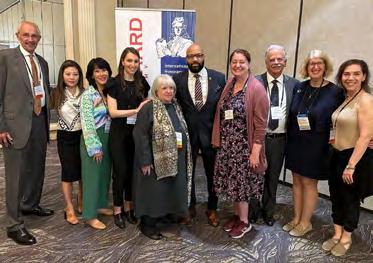
3 minute read
In His Own Words
In His Own Words
We asked Dr. Maurice Edwards to weigh in on the state of diversity programs today and in the future and their impact on the dental profession.
Q: Diversity, equity and inclusion programs are under attack across the country. Can NYSDA’s DEI initiatives survive?
A: Simple answer, yes. One of the greatest strengths of NYSDA is its diversity. NYSDA’s member dentists comprise the full spectrum of nationalities, ethnicities and religions found across New York State and around the world. Because of the state’s rich history of welcoming immigrants, I am confident that both our political leaders and NYSDA’s leadership will not blunt the importance of Diversity, Equity and Inclusion programs by letting them fall by the wayside.
Q: You have indicated that you believe diversity disparities still exist in the profession and in patient care. Is organized dentistry doing enough to correct these inequities? What more could be done? It’s not hard to conclude that if a certain group of people isn’t represented in a specific profession, the neighborhoods from which they came probably lacked access to care from that specific profession. Is organized dentistry doing enough to correct the problem? No. We could always be doing more. We could partner with different organizations that already have established programs in the Black and brown communities and expose kids at the elementary level to a career in dentistry. We could establish mentorship programs to incentivize children from these communities to shadow/intern at schools and offices, to help them start on a path geared toward dentistry, and establish scholarships in the field of dentistry to relieve some of the financial burden.

Q: If you could do one thing to enhance the dental profession, what would it be?
A: I would like to find a way to allow all the different dental groups to speak with one voice. Although I understand that specialists have different concerns than general dentists, we all advocate for fairness in reimbursement fees, as well as for the benefit of our patients. However, because we all belong to different groups with different group interests, we fragment the profession, thereby getting only small pieces of what each group wants instead of one large gain for the profession as a whole.









